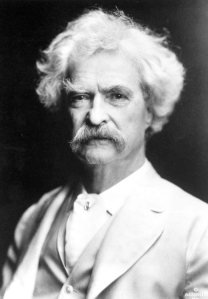There once was a grasshopper who lived in the reeds of a merchant’s garden. The garden was beautiful, so beautiful in fact, that it was held in greater esteem than the emperor’s own.
The grasshopper had many friends in this garden. The butterfly and the firefly, in particular, greatly enjoyed his company. Life was pleasant and good for them, even though the merchant who owned the land was foul-tempered and unkind. The townspeople avoided the merchant, and he ignored them, seeking nothing more than silence, for music was a blight to his ears.
Every night, the grasshopper would climb upon a simple blade of grass and begin his soliloquy. Nothing brought him greater joy. But no sooner would he start his concert each night, that the merchant, in a rage, would come outside and threaten him with an old broom. Our poor grasshopper was merely a grasshopper, however, and saw no harm in his chirps. The next night he would return, and carry on as usual.
This distressed the merchant, who found the grasshopper’s chirp lowly and unbefitting. After many nights of restless sleep, the merchant decided to take action. The next morning, while the grasshopper slept, the merchant commanded his servants to cut down all of the grass upon which the grasshopper liked to perch. The firefly was so heart-broken that he had to move away.
Quieter, and sadder, became our grasshopper’s nightly songs, but even this was too much for the merchant, who then ordered his servants to pull every flower in his garden up by the root. The townspeople cried to see the godly garden maimed, and the butterfly, no longer having any nectar to drink, was forced to leave as well.
How disheartened, our grasshopper friend.
The grasshopper was clever, however, and devised a plan. He knew that the merchant was a single man, for no married man would care about the chirping of grasshoppers—he would be doing plenty of chirping on his own.
He went to the river and gathered a great many reeds, which he bundled into a fine skirt around his waist. Then, he went to the lilies by the bank and painted his face to be in the custom of human women. Peering onto the water’s surface, the grasshopper found himself rather handsome, and the fish agreed.
He crept back to the merchant’s house and hid behind a window’s reed shutter. Chirping, in the sweetest voice he could muster, the grasshopper called to the merchant inside. “My, what a handsome fellow! I wonder if there is a home here for me?” For you see, that is the chirp grasshoppers make.
The merchant was quite charmed, and instantly ran to the window to pull back the reed. But the grasshopper stopped him, because if the merchant were to look carefully past the window reed shutter, he would know his true identity immediately.
“Oh no! Please don’t look. Only my husband can have the privilege.”
And so the merchant stopped, and rather than be suspicious of the secretive woman, he only found himself endeared. “Pray tell, Gentle Lady, what one must do to be your husband.”
The grasshopper could hardly contain his chirp of amusement. “Plant me a pretty lawn, to match my robe, and I will wed you.” And he flourished the lush reed skirt for the merchant’s desiring eyes.
The next day, the merchant hastened to install a fine green lawn in his yard. The gardeners toiled all the day. By evening, the firefly returned, drawn by the aroma of the fresh verdant grasses. This pleased the grasshopper, but butterfly had not yet returned, and he felt he owed the merchant a little more mischief. That night, he went back to the pond, where he gathered yellow ginkgo leaves to make an even finer robe. He returned to the window once again, and hiding behind the shutter, chirped sweetly, “My, what a handsome fellow! I wonder if there is a home here for me?”
 The merchant, confused, dashed to the window once more. But he remembered the lady’s shyness, so did not attempt to pull back the shutter. “I do not understand. Do you not see the fine green lawn I have planted? Am I still not fit to be your husband?”
The merchant, confused, dashed to the window once more. But he remembered the lady’s shyness, so did not attempt to pull back the shutter. “I do not understand. Do you not see the fine green lawn I have planted? Am I still not fit to be your husband?”
The grasshopper shook his pretty, painted face. The gingko dress rustled like tin bells. “Oh, this lawn is very fine, but it is not nearly right enough. For you see, my robe is yellow. You must have gotten it wrong.”
The merchant, dismayed, apologized and promised to set it right.
The very next day, he had the gardeners remove the green lawn and instead plant a wondrous variety of yellow flowers. Daffodils, rape weed, roses, and gladiolus peppered the whole of the garden. The smell was intoxicating, and butterfly, drunk before noon, thanked the grasshopper heartily. The merchant, for his part, was certain that his night caller would be most impressed.
But that night, the grasshopper arrived in red. Petals from the crimson gum trees by the pond fashioned a royal skirt and corset, and it was all the merchant could do not to throw open the shutter and steal her for his wife.
Nonetheless, the grasshopper denied him, and chirping in his most lovely voice, begged the merchant to try again.
Now this continued for many days, and the merchant’s neighbors wondered at the drastic changes in his yard. Soon, everyone came every day to see the merchant’s most wondrous lawn changing color. On the day the changes started, it was a Monday, and now, by Sunday, they had seen blue, orange, purple, and white besides.
They did not know it was the grasshopper, and the merchant, a fool in love, never suspected a thing. But high time was coming, the grasshopper knew, that the game end, for he was tired of outwitting a simpleton.
On this final evening of our story, the grasshopper returned to the pond, and begging some scales from his goldfish friends, and the lights of a dozen or so fireflies, he fashioned the most wondrous celestial robe, and painting his face finer than any other night before, he returned to the merchant’s window.
This night, the exchange between the grasshopper and the merchant was quite melancholy, and the grasshopper cautioned the merchant. “I grow tired of your teases, my lord. Tomorrow. Tomorrow, will be your last chance to prove yourself to me.”
The merchant swore to appease his night caller, near mad with desire for the woman beyond his screen. The next day, he had the gardeners lay solid gold bricks upon his lawn, and before the night fell, every single one of them had been stolen by the people who had come to see his garden.
The merchant had become too poor to have his garden weeded, and the grasshopper was free to chirp to his heart’s content.
Also, everyone in town was a little bit richer.


